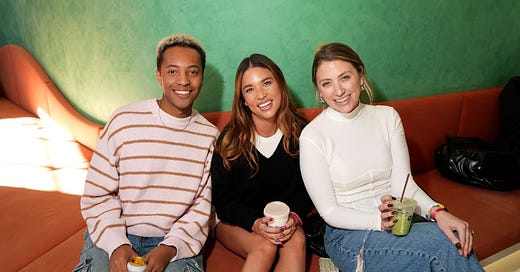Is Spotify the new YouTube?
+ BlueSky has the juice, the MAGA girlie aesthetic, NPC streamer romance, brr baskets, and drama on the Crumbl cookie subreddit
For years, YouTube has been the undisputed king of online video, but this week Spotify rolled out some changes that might challenge its throne.
At a podcast star-studded event in Los Angeles on Wednesday (the Hawk Tuah girl was there along with a slew of big YouTubers), Spotify a…




